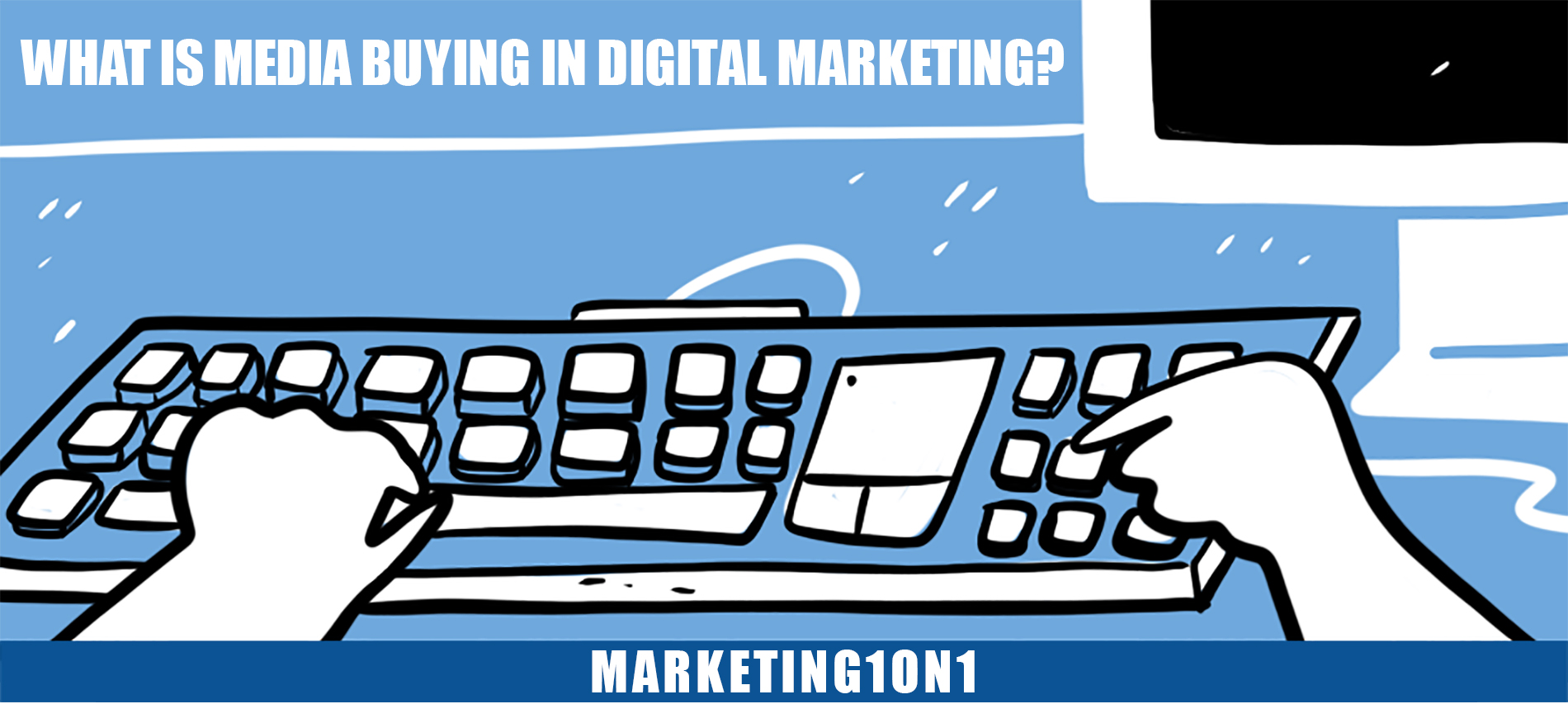- HOME
- CHECKOUT / CART
- LOGIN / REGISTER
- LINK BUILDING
- SEO
- OTHER SERVICES
- RESOURCES
- ABOUT
- About Us
- Why Us
- Testimonials
- INDUSTRIES
- Cannabis CBD Marketing and SEO
- Carpet Cleaning Marketing and SEO
- Cell Phone Repair Marketing and SEO
- Dental Marketing and SEO
- Drug Rehab Treatment Centers Marketing and SEO
- HVAC Marketing and SEO
- Junk Removal Marketing and SEO
- Law Firm Marketing and SEO
- Law Firm Website Design
- Medical and Healthcare Marketing
- Plastic Surgeons Marketing and SEO
- Plumbing Marketing and SEO
- Private Detectives / Investigators Marketing and SEO
- SaaS Marketing and SEO
- CONTACT
What is media buying in digital marketing? |

What is media buying in digital marketing?
Media buying is the process of planning, negotiating, and purchasing ad space in order to reach a target audience. This process has become increasingly complex in the digital age, as there are now more ways to reach consumers than ever before. As a result, media buyers must be strategic in planning to allocate their resources in the most effective way possible. In this blog post, we will explore what media buying is and how it fits into the larger landscape of digital marketing. We will also provide tips on being a successful media buyer.
What is media buying?
In digital marketing, media buying refers to the process of planning and executing the purchase of advertising space in order to promote a company’s products or services. This can be done on various digital platforms, such as websites, social media sites, and mobile apps.
The first step in media buying is to understand the target audience that the company wants to reach. Once this is determined, the buyer needs to research which digital platforms would most effectively reach this audience. After identifying the platforms, the buyer will negotiate with the owners of these spaces to secure ad placements. The last step is to monitor the performance of the ads and make necessary adjustments to optimize results.
The different types of media buying
Media buying in digital marketing refers to the process of purchasing ad space on digital platforms such as websites, apps, and social media. There are three main types of media buying: direct, programmatic, and real-time bidding (RTB).
Direct media buying is the traditional method of purchasing ad space. Advertisers work with a publisher or website owner to negotiate a price for an ad spot. The advertiser then pays the publisher directly for the ad space.
Programmatic media buying is a more automated form of media buying that uses software to purchase ad space. Advertisers can use programmatic media buying to buy ad space in real-time through an auction-based system.
Real-time bidding (RTB) is a type of programmatic media buying that allows advertisers to bid on ad space in real-time. RTB is typically used for display advertising on websites and apps.
The benefits of media buying
There are many benefits to media buying in digital marketing. Businesses can reach a large audience with their message by purchasing advertising space on websites and other digital platforms. Media buying allows businesses to target their ads to specific demographics, interests, and even locations. This ensures that the right people see the ads, which can lead to more sales and conversions. Additionally, media buying can be a cost-effective way to reach potential customers. When done correctly, businesses can get more bang for their buck with media buying than other forms of advertising.
The challenges of media buying
Digital marketing is a process by which businesses market their products or services online. Media buying is a key part of this process, as it involves selecting and purchasing advertising space on various digital platforms.
Media buying can be a complex and challenging process, as there are many different factors to consider. For example, businesses must decide which platforms to advertise on, what type of ad to use, and how much to spend. Additionally, media buyers must constantly monitor campaign performance and make adjustments as needed.
How to get started in media buying
If you’re new to media buying, the process can seem daunting. But with a little understanding of the basics, you can be up and running in no time. Here’s a quick guide to getting started in media buying:
1. Know your objectives. Before you start buying media, it’s important to know what your objectives are. What are you trying to achieve with your marketing efforts? Be clear on your goals from the outset, so you can choose the right media outlets and strategies to help you reach them.
2. Research your audience. Once you know your objectives, you need to understand who your target audience is and where they consume media. What types of content do they engage with? What channels do they use? Knowing this information will help you make more informed decisions about where to buy media.
3. Choose your channels. Once you’ve done your research, it’s time to select the channels that will work best for reaching your target audience. There are various ways to buy media, so consider all your options and choose the ones that will work best for your campaign.
4. Negotiate rates and contracts. Once you’ve selected your channels, it’s time to negotiate rates and contracts with your chosen outlets. This is where working with an experienced media buyer can be helpful, as they can often get better deals than if you were negotiating on your own behalf.
5. Monitor results and adjust accordingly.
Conclusion
In short, media buying is the process of purchasing advertising space in order to promote a product or service. This can be done through various channels, such as TV, radio, print, or online. Media buyers typically work with ad agencies or directly with businesses to negotiate and purchase ad space. With the advent of digital marketing, media buying has become increasingly complex, as there are now more ways to reach consumers than ever before. However, the basics of media buying remain the same: businesses identify their target audience and then purchase ad space that will reach that audience most effectively.
Our locations and Services:
Find us on Google maps for directions: Digital Marketing | SEO Las Vegas, Digital Marketing | SEO New York, Digital Marketing | SEO Phoenix, Digital Marketing | SEO Houston, Digital Marketing | SEO Atlanta, Digital Marketing | SEO Anaheim, Digital Marketing | SEO Alexandria, Digital Marketing | SEO Austin, Digital Marketing | SEO Calabasas, Digital Marketing | SEO Cleveland, Digital Marketing | SEO Corpus Christi, Digital Marketing | SEO Dayton, Digital Marketing | SEO Detroit,Digital Marketing | SEO Fort Worth, Digital Marketing | SEO Henderson, Digital Marketing | SEO Indianapolis, Digital Marketing | SEO Irvine, Digital Marketing | SEO Jersey City, Digital Marketing | SEO Knoxville, Digital Marketing | SEO Long Beach, Digital Marketing | SEO Los Angeles, Digital Marketing | SEO Medford, Digital Marketing | SEO Mesa, Digital Marketing | SEO New Orleans, Digital Marketing | SEO Palmdale, Digital Marketing | SEO San Jose, Digital Marketing | SEO Santa Clarita, Digital Marketing | SEO Santa Monica, Digital Marketing | SEO Scottsdale, Digital Marketing | SEO Sherman Oaks, Digital Marketing | SEO Seattle, Digital Marketing | SEO Tacoma, Digital Marketing | SEO Torrance

By placing an order, signing up for services from Marketing1on1 LLC or using this website you agree to Terms and Conditions and Privacy Policy
Copyright © Marketing1on1 LLC All rights reserved.
The content of this web site may not be copied, replaced, distributed, published, displayed, modified, or transferred in any form or by any means except with the prior permission of Marketing1on1 LLC.
Copyright infringement is a violation of federal law subject to criminal and civil penalties.
Blog | Accessibility Statement




